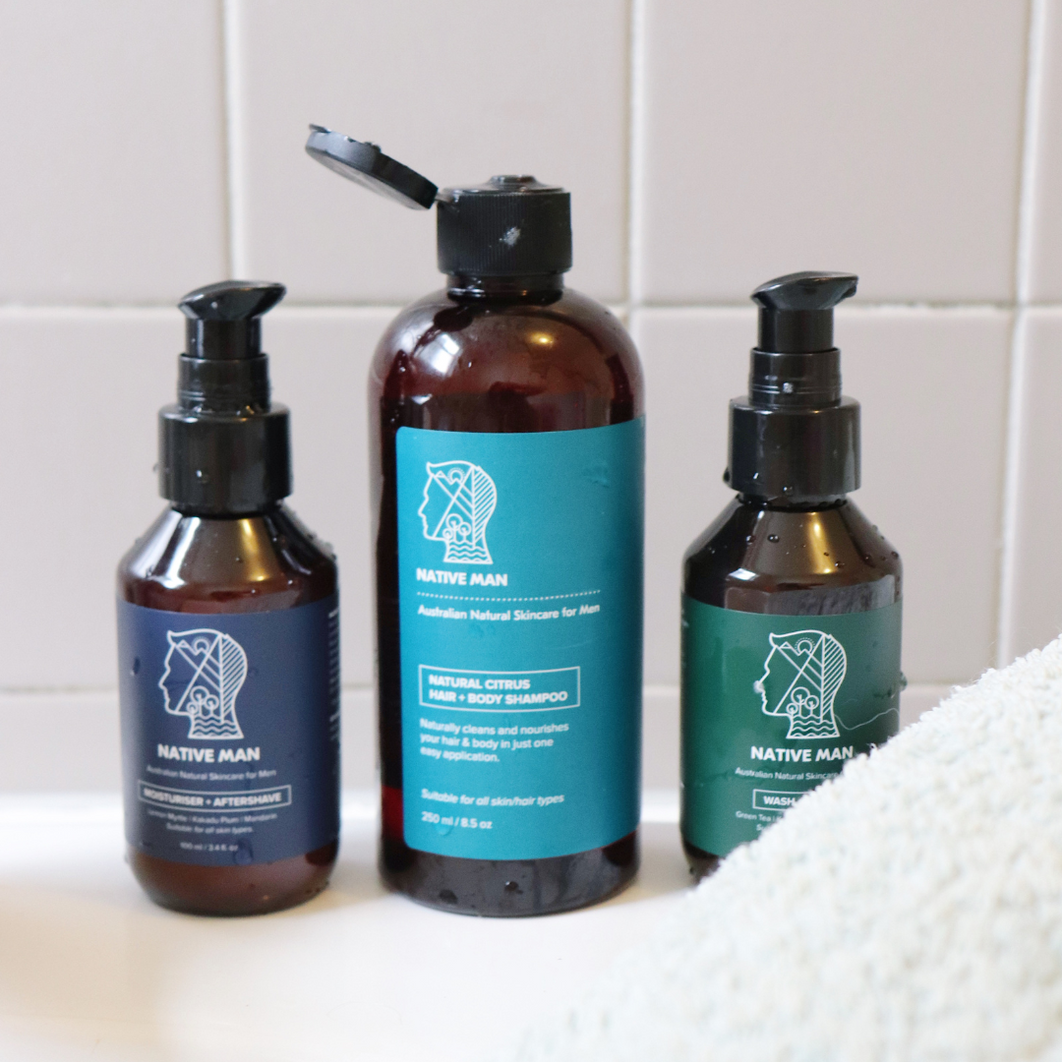By Samantha Gemmell (Guest Post)
Germs are an everyday part of life – we’re surrounded by them. But that doesn’t mean that you want to get an infection! If you’re looking for natural ways to support your immune system, I’ve got you covered.
An overview of the immune system
The immune system, like all body systems, has a variety of functions. But the main goal is to protect the body from harm. It prevents infections from germs such as viruses and bacteria, as well as healing damaged tissue from injury or illness and detecting cancerous cells.
There are two main branches of the immune system – innate and acquired immunity. Both play a role when it comes to fighting off infections.
Innate immunity is a general defence system. It includes physical barriers such as your skin and digestive tract, defence mechanisms and a general immune response.
With a general immune response, your immune system detects something unfamiliar or threatening within the body. To protect you, it quickly sends cells that try to contain the problem. Some cells inflame the area so that the germ can’t spread easily, and others even try to eat the germ! They also call more immune cells to the area, which is where acquired immunity comes in.
Acquired immunity is built up over time as we are exposed to different types of germs.
When an immune cell comes across a germ, it learns everything it can about that specific germ so it can better protect you from it in the future. If you catch that same strain of germ in the future, your immune system knows exactly how to handle it, so you will recover quickly from that infection.
Acquired immunity is why vaccinations protect against certain infections. It’s a way of teaching the body how to deal with a nasty infection without you having to fall sick in the first place.
The immune system relies on white blood cells. White blood cells such as natural killer cells, monocytes and T-cells act as the soldiers of the immune system, defending the body from harm.
There are many factors that affect the immune system. Everything from your diet, lifestyle, sleep, stress levels, environmental factors such as pollution and tobacco smoke and even genetics play a role.
This is a good thing – it means that if you can’t control one factor, such as being at risk of exposure to a virus or bacteria, you can still take other steps to reduce your risk.
Can you boost your immune system?
‘Boost’ is a term that is argued about a lot in the health world. Some think that if you boost your immune system, you’ll get autoimmune issues.
This isn’t how it works – autoimmunity is a dysfunction of the immune system that causes it to overreact. They are two very different states for the immune system to be in!
However, because of this, I prefer to use words like ‘support’ and ‘optimise’ when it comes to the immune system. So if you want to know if there are steps you can take to support and optimise your immune system – the answer is yes!

How to naturally support a healthy immune system
Now that you know the basics of the immune system, let’s take a look at a few ways to support a healthy, balanced immune system.
1) Eat plenty of wholefoods
Just like every other system in the body, your immune system needs fuel to function. It requires specific nutrients and amino acids to be at its best every day. And the best way for you to fuel it is to eat a variety of wholefoods.
Wholefoods include:
- Fruit
- Vegetables
- Nuts
- Seeds
- Herbs
- Spices
- Eggs
- Seafood
- Meat
- Legumes
- Wholegrains
If you focus even 80% of your daily choices on these key foods, your immune system will get a good dose of the nutrients it needs to thrive.
2) Move your body
It might not be the first thing that comes to mind, but exercise can support your immune system. Studies have found that people who exercise frequently are less likely to catch a cold over the colder months¹.
Regular exercise can also protect the immune system from age-related decline. One study found that cyclists aged in their 50 to 70s had similar T cell counts to healthy young adults in their 20 to 30s².
Of course, if you’re sick, you can stay home in bed and rest! But if you’re wanting to prevent illness or have mild symptoms, get out there and move.
3) Get a good night’s sleep
We all feel better after a good night of rest. But your immune system also needs a good sleep to function optimally.
One study found that just one night of partial sleep deprivation reduced natural killer cells and the overall immune response³. Another found that poor sleep can alter the genes related to immunity and inflammation, and can actually suppress the immune system’s genetic programming⁴.
Remember that quality is just as important as quantity when it comes to sleep!

4) Manage your stress levels
Stress is something that we all experience as part of life. But it can be toxic to the immune system, especially when it comes to chronic stress.
Acute stress has been found to suppress natural killer cells and monocytes, leaving the body vulnerable to infection⁵. Chronic stress suppresses white blood cells⁶, and impairs the function of T-cells⁷, which affects how well your adaptive immune system works.
Relieving stress is unique to you as an individual. But some ideas for relieving stress include:
- Gentle exercise or yoga
- Meditation
- Journalling
- Practising gratitude
- Diffusing some stress-relieving essential oils
- Spending time in nature
- Gardening
- Spending quality time with your loved ones
- Cuddling a pet
- Taking a warm bath or shower
- Engaging in a hobby that you enjoy
- Speaking with a mental health professional such as a counsellor
5) Diffuse essential oils
Essential oils are a handy tool when used correctly, including for killing germs. Many essential oils have antibacterial activity, but there are also some that have anti-viral activity. This means they can kill the viruses that cause infections such as cold and flu.
Studies suggest that Bergamot, Kunzea, Cinnamon Bark, Clove Bud, Sweet Orange essential oils have various anti-viral activities.
In fact, the Zea Essentials Nirvana Blend, combines three of these oils listed above - Cinnamon, Clove and Orange - with the uplifting citrus aroma of Lime. A great lifestyle blend for boosting immunity.
To reap the benefits, diffuse one or more of these oils for 30 minutes. You can also use them in cleaning solutions for non-porous surfaces throughout your home.
6) Seek professional advice
There are plenty of ways that you can support your immunity at home. But there are some cases where working with a professional is your best option.
If you have multiple dietary restrictions, known nutrient deficiencies or have a condition that affects immunity, working with a qualified health practitioner is the way to go.
Boosting Immunity: Final Thoughts
The best way to support your immune system is to include daily habits that add up to a healthy, balanced immune system. By following these tips, you’ll be less likely to fall sick, and hopefully spend less time sick if you do catch a bug!

About the Author - Samantha Gemmell
Sam is a qualified nutritionist, health writer and speaker. Her passion lies in the power of food and the belief that there is no one perfect diet for everyone. Although she wears many hats within her industry, her end goal remains the same: making health simple, actionable and evidence-based. To get in contact with Sam, please visit: www.samanthagemmell.com
References
- David C Nieman, Dru A Henson, Melanie D Austin, Wei Sha, et al “Upper respiratory tract infection is reduced in physically fit and active adults”. British Journal of Sports Medicine 2011;45:987-992. https://bjsm.bmj.com/content/45/12/987. Online issue publication September 07, 2011.
- Michael Irwin, John McClintick, Carolyn Costlow, Melissa Fortner, Jack White, J. Christian Gillin, “Partial night sleep deprivation reduces natural killer and celhdar immune responses in humans”. https://doi.org/10.1096/fasebj.10.5.8621064. Issue Online: 01 April 1996.
- NF Watson, MD, MS, D Buchwald, MD, JJ Delrow, PhD, WA Altemeier, MD, MV Vitiello, PhD, AI Pack, MBChB, PhD, M Bamshad, MD, C Noonan, MS, SA Gharib, MD, “Transcriptional Signatures of Sleep Duration Discordance in Monozygotic Twins”, Sleep, Volume 40, Issue 1, 1 January 2017, zsw019, https://doi.org/10.1093/sleep/zsw019. Published: 25 January 2017.
- Maydych V, Claus M, Dychus N, et al. “Impact of chronic and acute academic stress on lymphocyte subsets and monocyte function”. https://doi.org/10.1371/journal.pone.0188108. Published online 2017 Nov 16.
- R. Frick, M. L. Barreiro Arcos, M. Rapanelli, M. P. Zappia, M. Brocco, C. Mongini, A. M. Genaro & G. A. Cremaschi (2009). “Chronic restraint stress impairs T-cell immunity and promotes tumor progression in mice”. https://doi.org/10.1080/10253890802137437. Published online: 07 Jul 2009.
- Alberts B, Johnson A, Lewis J, et al. Molecular Biology of the Cell. 4th edition. “Innate Immunity”. https://www.ncbi.nlm.nih.gov/books/NBK26846/. New York: Garland Science; (2002).
- Alberts B, Johnson A, Lewis J, et al. Molecular Biology of the Cell. 4th edition. “Chapter 24, The Adaptive Immune System”. https://www.ncbi.nlm.nih.gov/books/NBK21070/. New York: Garland Science; 2002.
- Shannon Becker PhD, “Essential Oils to Prevent the Spread of Flu”. https://tisserandinstitute.org/essential-oils-flu/.
- Kathy Sadowski, “Essential oils to fight COVID-19 myths busted by an aromatherapist”. https://www.wellnessaromas.com/essential-oils-covid-19-myths/. Updated July 15th, 2020.




